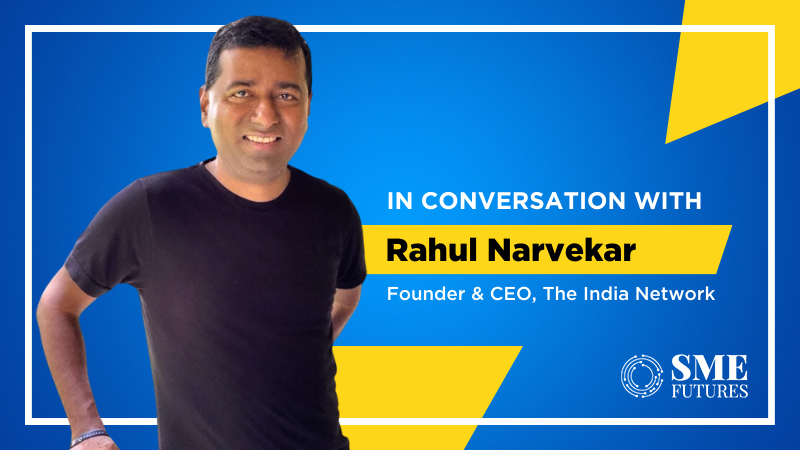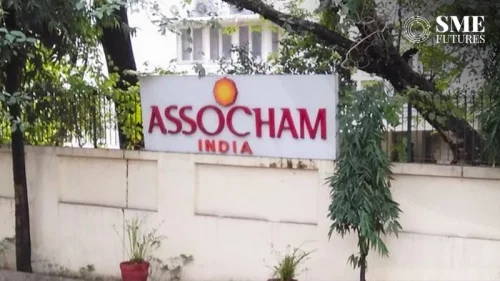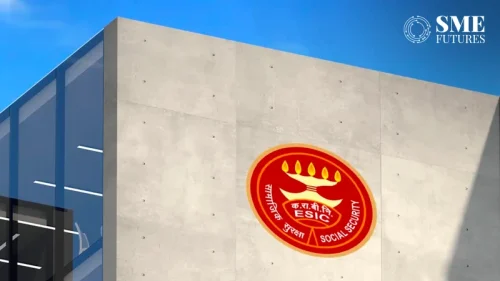From a humble background to becoming the CEO of The India Network, how do you define your life journey?
I have three data points here. First, I am Ganpati’s favourite child. Second, when I look back at my 51-year-old project, the one consistent message I get is that every time things have not gone as per plan or as per my wish, it has been a game-changer. And third, I have been blessed to have had incredible mentors. They appeared out of nowhere at the absolute right time.
Tell us about your initial life in the slums and how it shaped the entrepreneur within you?
I was born in a ghetto in Bombay. I remember for most of my neighbours, the only viable career option was to become a shooter in a gang.
My father taught me valuable lessons from a young age. He used to make extra income by doing side gigs and assisting others in doing the same. When we purchased the second black and white television in the area, the previous owner charged people to watch TV, but my father did not. These were the first two entrepreneurial principles I acquired from my father.
Subsequently, when my father lost his job during the famous textile strike in Mumbai, our financial situation deteriorated. During that time, we could not afford trousers for school uniforms. So, my mother hand-sewed my trousers from the cheapest fabric I bought. But it shrank after the first wash. And for the next six months, until we could afford new trousers, I was teased at school for wearing ankle-length trousers.
Similarly, due to malnutrition, I developed near-sightedness. I could not see distant objects, even the blackboard, but I opted not to burden my family as they could not afford a pair of glasses. However, in reaction to these issues, I resolved to improve in all areas. I was a topper in my school for ten years in a row, from the first to the tenth grades.
Also, I was unable to afford books, so I used to visit a scrap dealer to read old books/magazines. My reading habit took me far ahead of others in the slum and later those ideas became my ticket out of the slum.
A few years ago, you were in the news for selling a shawl worth Rs 19 lakhs, what is the story behind it?
In 2013, I started Indian Roots, an online e-commerce platform for luxury brands. It took off in months. We grew from a Rs 84 lakh company to a $85 million company in 3 years. Our average order value was the highest in the country at that time.
We sold a shawl worth Rs 19 lakhs online, making it the single largest transaction in e-commerce with a credit card. It was a first for any Indian company and made headlines at that time. Dr. Prannoy Roy of NDTV said this about us, “I spent 27 years making NDTV and the entire valuation is Rs 90 million. This small start-up called Indian Roots in which I did not invest anything has a valuation of $85 million with an initial capital of Rs 84 lakhs.”
Let’s talk about India Network. How far have you progressed in building a niche community for entrepreneurs and investors?
My ‘Aha’ moment was during my Puducherry trip in 2016 when I helped an IIT Madras student with a problem that he had been struggling with for a year. With one phone call, his issue was resolved.
I realised that advice or validation coming from an experienced person can potentially transform someone’s life. This was the point when I got the idea for starting The India Network.
My goal as CEO of The India Network is to foster collaborations between MSMEs and start-ups. Today, at 51 years old, I have worked on a few start-ups. I understand investment scenarios. So, if a 75-year-old wants to invest, I can convince him that he can invest in a 17-year-old kid’s idea because it has strength. Similarly, I can convince the 17-year-old that the investor won’t be after your life, and his offline distribution system is very good for you. That’s matchmaking!
MSMEs need new energy, which might be new technology or simply new methods of doing things. And a start-up requires a trained mentor to help them. I’ve seen IITians who are very skilled in technology, but one notification from the government causes them to panic; they don’t know how to obtain certifications or deal with ministries. The India Network comes into play in this situation.
Based on your entrepreneurship expertise, how do you view the current health of India’s start-up ecosystem and MSMEs growth?
I feel that collaborations between MSMEs and start-ups is the biggest opportunity in India for the next ten years. Let’s look at the numbers.
India is a 3.5 trillion economy. Even conservatives indicate that we are going to double it in the next ten years. The way forward is to either exploit current sectors, create new sectors, or change the way existing sector’s function. This perspective begins with young kids. We are what I refer to as the “constrained mindset” generation.
Today’s start-ups are zealous and have risk-taking abilities. They value their time over money. This is why they lose money, not because they want to, but because they can forgo cost-cutting to scale up.
MSMEs, on the other hand, adhere to standard practices. They have connections and wisdom. We must blend both.
MSMEs focus on what is changing; they should focus on what will not change in the next ten years like food, entertainment, comfortable clothing, fashion, etc. For example, despite the emergence of OTT, Bollywood continues to expand. MSMEs need to do the same, they must adapt to what’s happening.
With the rise of e-commerce and digital platforms, what according to you is the future of traditional retailers?
See if an e-commerce platform like Amazon comes before a mom-n-pop shop, they need to change strategy to survive. So, either you change the way you are working, or you are going to collapse.
But all said and done, even today you cannot replace traditional retailers.
Two things are happening simultaneously in India, Zepto delivers in 10 minutes, so consumers are getting accustomed to fast services but at the same time offline retail is
also taking off, stores have become experience centres.
Whosoever survives this wave will grow, others may not die but won’t be able to grow.
What government policy changes or reforms would benefit start-ups and e-commerce businesses, fostering a more conducive environment for growth and innovation?
The government’s job is to build infrastructure to facilitate the economy. There should be no role of the government beyond that. The government is already overburdened, taking care of every sector, be it defence, foreign affairs or communications.
I will reiterate the difference between traditional MSMEs and start-ups and why they grew so fast. The start-up mindset doesn’t try to control what they can’t. They won’t waste energy on that. Start-ups thrive despite government initiatives.
What are your future plans and what is your message to the young entrepreneurs of India?
This is the most amazing time to be in India. In the next ten years, people can either participate in building the economy or waste time.
For the last two to three years, there was a pause in my project because of COVID-19 and personal issues. Now, we are restarting. I am working with state governments, IITs, and small entrepreneurs. I am also starting a new-age start-up university. That’s going to be my legacy.
I have two words for young entrepreneurs- Be Besharm (bold) in a good way.
Most of the people around us have many moments in life when they say, I wish I had… They stop at had because they are afraid of people’s opinions and failure.
I did so many things in my life that didn’t work out. So, to the youngsters, I want to say that failure is an event not a person.
The day you become bold, you do more things and by the law of probability, it increases your chances of success. And the only way to do more is by becoming bold.











